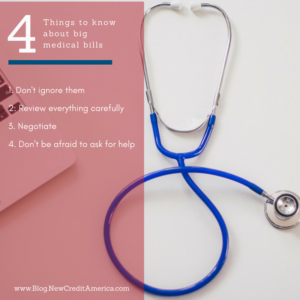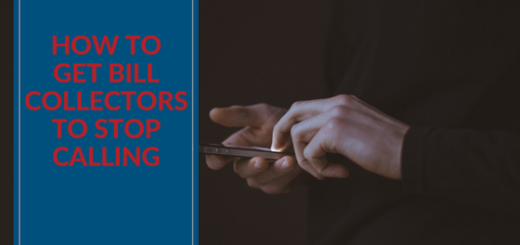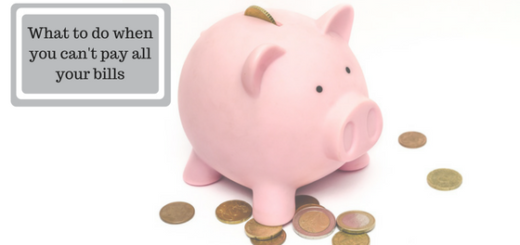Medical Debt: What to do if You’re Burdened by Big Bills
 Do you know the leading cause of bankruptcy? The answer might surprise you. While the total amount of this type of debt pales in comparison to student loan or credit card debt, it’s still a very real problem. Approximately 62 percent of personal bankruptcy filings were due to medical expenses. According to a 2017 study, more than 25 percent of U.S. adults struggle to pay medical bills. This is the case even though many people are more likely to have health insurance than in past years. So why does medical debt wreak so much havoc on our finances? And are there ways to deal with this type of debt before resorting to drastic measures like bankruptcy? Here’s what you need to know about managing your medical debt.
Do you know the leading cause of bankruptcy? The answer might surprise you. While the total amount of this type of debt pales in comparison to student loan or credit card debt, it’s still a very real problem. Approximately 62 percent of personal bankruptcy filings were due to medical expenses. According to a 2017 study, more than 25 percent of U.S. adults struggle to pay medical bills. This is the case even though many people are more likely to have health insurance than in past years. So why does medical debt wreak so much havoc on our finances? And are there ways to deal with this type of debt before resorting to drastic measures like bankruptcy? Here’s what you need to know about managing your medical debt.
What’s the deal with medical bills?
Part of what makes medical debt so impactful is its unexpected nature and bad timing. Dealing with a serious injury or illness is disruptive enough. Then, on top of trying to get healthy, you’re hit with a big bill. About 45 percent of Americans report struggling to pay an unexpected $500 medical bill. Adding to the problem—medical bills function differently than other types of debts. Doctors offices and hospitals need money to run effectively. So, unlike other bills, which are reported delinquent to credit bureaus, unpaid or late medical bills are often reported straight to debt collectors. Now you’re dealing with constant calls from bill collectors, as well as a drop in your credit score because your debt collector did report the debt to the credit bureaus. This is why medical bills can have such severe consequences.
What can you do to stop the damage?
If you’ve been dealt an unexpected medical bill, you have options other than resorting to bankruptcy, which is costly and time-consuming. If you get a bill you can’t cover right away, here’s what you need to do.
Don’t ignore it
Ignoring a medical bill doesn’t make it go away. It only makes your problem worse. Ignoring the bill only means you now have a collections agency and dinged up credit report on your plate too. Once the bill moves to a collections agency, you lose any leeway you might otherwise have.
Review everything carefully
Before you make any decisions about payments, review your bill carefully. It can be beneficial to ask your provider for an itemized bill to see exactly they’re asking you to pay for. This also allows you to check for errors such as double billing or incorrect medications. If you see an error, gather your proof, and review the bill with your provider’s office. If your insurer declined coverage, you’ll want to make sure your provider used the correct billing codes.
Negotiate
If there are no errors on your bill, it’s not a ‘game over’ situation. You still have options. And, they’re still better than bankruptcy or dealing with debt collectors. Now you’ll need to contact your health care provider directly. Ask them about your payment options. Because providers are relying on your payments to get paid, they may help you out. If you show a willingness to pay, they may help you find an option that is more budget-friendly for you. Many offices or hospitals have unadvertised programs for those who need assistance with medical debt. You just have to ask. If there is no such program, ask about other options such as monthly payment plans, discounts for paying the bill sooner or the option to pay the Medicare rates.
Seek additional help
Dealing with a medical situation can be emotionally, mentally and financially challenging. Health care professionals know this. If you’re unable to decrease your bill yourself or are still feeling burdened and overwhelmed, consider finding a medical billing advocate. Medical billing advocates are professionals who sort through all your bills for you, and then negotiate on your behalf. This can be a useful service if your plate is too full dealing with your family’s medical situation. You and your family’s health should be the top priority.


